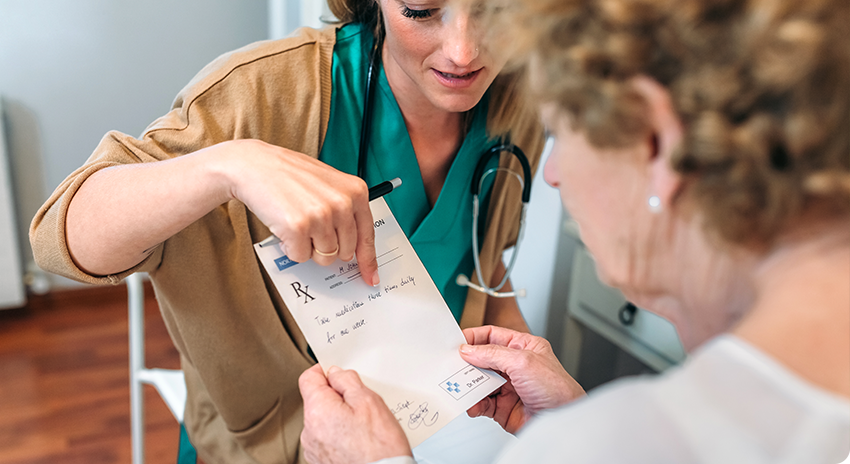This website uses cookies so that we can provide you with the best user experience possible. Cookie information is stored in your browser and performs functions such as recognising you when you return to our website and helping our team to understand which sections of the website you find most interesting and useful.
Home Care In Charleston, SC

They say that your golden years are the best years of your life. For most older Americans, that's how it should be - a time to relax, reflect, and live life in a familiar place. After all, senior citizens in the U.S. have worked tirelessly to build a better economy, serve their communities, and raise families.
However, as seniors grow older, completing daily tasks like showering and enjoying activities such as visiting Charles Towne Landing State Historic Site in Charleston, SC gets harder without someone by their side. Unfortunately, many older Americans aren't able to rely on their adult children for help. The reality in today's world is that family members do not have the skills or time to dedicate to caring for their parents. That's where Always Best Care Senior Services comes in.
Our in-home care services are for people who prefer to stay at home as they grow older but need ongoing care that family or friends cannot provide. More and more older adults prefer to live far away from long-term, institutionalized facilities and closer to the place where they feel most comfortable - their home. Home care in Charleston, SC is a safe, effective way to give your loved ones the care they need when they need it the most.

 Home Care Services
Home Care Services
- Home Care in Charleston, SC
- The Always Best Care Difference
- Types of In-home Care in Charleston, SC
- Benefits of Home Care in Charleston, SC
- Aging in Place: The Preferred Choice for Most Seniors
- Affordable Care Plans
- Compassionate Care. Trusted Caregivers
- Assisted Living Referral Services
- Taking the First Step with Always Best Care
 Service Areas
Service Areas
The Always Best Care Difference
Since 1996, Always Best Care has provided non-medical in-home care for seniors to help them maintain a healthy lifestyle as they get older. We are proud to have helped more than 25,000 seniors maintain higher levels of dignity and respect. We focus on providing seniors with the highest level of in-home care available so that they may live happily and independently.
Unlike some senior care companies, we genuinely want to be included in our clients' lives. We believe that personalized care is always the better option over a "one size fits all" approach. To make sure our senior clients receive the best care possible, we pair them with compassionate caregivers who understand their unique needs. That way, they may provide care accordingly without compromising their wellbeing.
The Always Best Care difference lies in life's little moments - where compassionate care and trustworthy experience come together to help seniors live a fruitful, healthy life. Whether you are an aging adult that can't quite keep up with life's daily tasks or the child of a senior who needs regular in-home services, Always Best Care is here to help.
“Best Senior Service Care in Charleston to work for. Christine and Rick are very positive”
“Very Professional and excellent staff.”
“Our family has been using the services of Always Best Care for the past six”
“I cannot say enough wonderful things about Always Best Care Charleston! I am truly blessed”
“Always Best Care caregivers have been taking care of Dad for over a year. We”
“Like most I was not prepared for the transition to being the responsible one for”
“We have had several senior services for my Mother that we were really not happy”
“Good Afternoon! I hope you're doing well! I wanted you to know that my dad”
“The absolute best caregiving company to work for hands down! Rick and Christine are genuine,”
“This is a great company to work for. All their caregivers are dedicated and caring.”
“These people are lifesavers! We searched for months to find an in-home care agency for”
“Always Best Care has constantly provided quality care services for my wife over many months”
“Couldn’t imagine a better team of people to take care of my loved ones. Rick”
“Rick and Christine, of Always Best Care Charleston, are the exact people I would trust”
“I've known Christine and Ricky Johnson for more than 30 years and would highly recommend”
“I joined Always Best Care as the Director of Operations about 3 months ago. I”
“I have known Christine and Rick for years. Their actions and words repeatedly demonstrate their”
“I couldn't be happier that Ricky and Christine Johnson have joined Always Best Care Senior”
“How fortunate the Charleston community is to have Always Best Care to serve the needs”
“I have known Christine and Rick Johnson both professionally and personally for over 20 years”
“Best Senior Service Care in Charleston to work for. Christine and Rick are very positive and supportive and for that I love my Job.”
“Very Professional and excellent staff.”
“Our family has been using the services of Always Best Care for the past six months and are grateful for the assistance provided to my elderly parents. Initially Rick, one of the owners, met with us along with my parents to closely assess their needs. His warm, friendly manner was helpful in persuading my father to give the assistance a try for two days per week. Rick listened carefully to choose the best match in caregivers, and we could not be more satisfied than we are with our parents' caregiver. She has quickly become essential in their lives and makes a huge difference in whether or not they can remain in their home. Her manner with my parents is professional, but loving, always--- always--- going the extra mile to meet their needs. She is knowledgeable, hard-working, caring, and trusted to do what is in their best interest. We are thankful that someone told us about Always Best Care and ever grateful for our caregiver.”
“I cannot say enough wonderful things about Always Best Care Charleston! I am truly blessed to be a part of such a wonderful team! Christine and Rick are very dedicated to the work that they are doing, and it shows in everything they do. I have never had the pleasure of working for a company with more passionate and involved owners. They show up for their clients and caregivers in every way possible. They go above and beyond to treat everyone like family and enrich the lives of those around them. I am so grateful to be able to be a part of this journey and cannot wait to see all the great things they will accomplish!”
“Always Best Care caregivers have been taking care of Dad for over a year. We appreciate Christine and Rick very much. Quentin, Ann, Alexus , you and others have been a joy to have in our home and doing whatever needs to be done. You show your care and concern for Dad’s physical and emotional well being and you have become part of our family. I really rely on you when we can’t be home and know Dad is in good hands!!! Keep up the good work!!! Love you all.”
“Like most I was not prepared for the transition to being the responsible one for my Mom. Looking back there were signs of memory decline but after emergency surgery and move to rehab the combative paranoid person my sweet, witty, well read , soft spoken Mom became was shocking. Medication and skilled care were prescribed. Several missteps were made with both. Mom’s dark side resulted in first skilled care company dropping us which I totally understood. I was very straight with Christine and Rick regarding Mom’s recent ‘trips out on the ledge’. Rather than politely taking a pass on us...they spent 2 hours in person with us, 3 cumulative hours on the phone asking me questions and strategizing how to avoid the triggers that put Mom ‘on the ledge’, and 2 twelve hour days observing, testing and tweaking strategies. We are approaching 2 months with no major or reportable incidents. I don’t know how long this again found quality of life will last. I am thankful that one of the nurses referred me to ABC. I am tremendously thankful to be their client for the remainder of this journey.”
“We have had several senior services for my Mother that we were really not happy with, then we found Rick and his staff with Always Best Care. There name says it all ... always the best care. Their staff are warm, caring and assist my Mother seven days a week, and she loves seeing Rick. I couldn't ask for better care & highly recommend them to anyone who needs this type of service.”
“Good Afternoon! I hope you're doing well! I wanted you to know that my dad LOVES Rick and so does Amya!! I can't thank you guys enough for all that you guys are doing, not only for my father but me! Rick went out of his way today and that truly meant a lot :) My dad is so happy and that makes me happy! you guys rock!! thank you!!!”
“The absolute best caregiving company to work for hands down! Rick and Christine are genuine, loving individuals which make them amazing business owners/ bosses. They do not hesitate to make their employees and clients happy. I’m so thankful to have met these amazing people and be apart of their outstanding company.”
“This is a great company to work for. All their caregivers are dedicated and caring.”
“These people are lifesavers! We searched for months to find an in-home care agency for my aging mother. Previous agencies we used had high turnover and repeated no-shows, leaving us scrambling to adjust and worried sick about Covid exposure from a revolving door of caregivers. Christine and her staff came to our rescue and changed all that. Their caregivers were patient, loving, dedicated and RELIABLE. They provide service at the highest level and we would wholeheartedly recommend them to others. My mother deserves the best care and I wouldn't use anyone else.”
“Always Best Care has constantly provided quality care services for my wife over many months of required assistance. The caregivers provide professional services with a loving touch. They have always addressed any questions or concerns immediately with kindness. The administration checks with me, periodically, for a review and any input for improvement. I highly recommend this company.”
“Couldn’t imagine a better team of people to take care of my loved ones. Rick and Christine are the kindest and most genuine people. Their years of work in the customer service industry truly show through the care they provide to others. Aside from the physical and emotional care they provide, which is most important, they are reliable, punctual, trustworthy, and their connections with others last a lifetime. Everyone is family with Rick and Christine.”
“Rick and Christine, of Always Best Care Charleston, are the exact people I would trust and choose to care for my aging loved ones. They are loving, patient, knowledgeable and extremely detail oriented. They have decades of experience in the customer service industry and truly value the relationships with each of their clients.”
“I've known Christine and Ricky Johnson for more than 30 years and would highly recommend their services! They've built businesses from the ground up and this one is / will be a perfect fit for them and their clients. They come from, and have created, a large family where assisting others is part of their everyday lives. Their caring nature, solid work ethic and integrity will be highlighted through Always Best Care Senior Services Charleston and will be to the benefit of clients' loved ones.”
“I joined Always Best Care as the Director of Operations about 3 months ago. I bring 15 years experience in senior living to this brand new non medical home care company. We have put together an excellent team of personal assistant’s and are ready to accept new clients.”
“I have known Christine and Rick for years. Their actions and words repeatedly demonstrate their high expectation of what it takes to nurture a loving family and to be active members of a positive, supportive community. Both clients and employees will benefit from their consistent standard of compassionate honesty & integrity as well as the positive energy they bring to every encounter. I recommend them without reservation.”
“I couldn't be happier that Ricky and Christine Johnson have joined Always Best Care Senior Services. From years of experience in dedicated customer service to the love and care of their own (and extended) family, this is a wonderful fit! The Johnson's tireless work ethic, attention to detail and heart for people should give family members of clients absolute confidence and trust in their care. Bravo!”
“How fortunate the Charleston community is to have Always Best Care to serve the needs of seniors. Rick and Christine Johnson, known for their dedication to helping others, have prayerfully commited to finding and nurturing the best team possible to assist them on this mission. Thank you, Rick and Christine, for offering families peace of mind for the care of loved ones.”
“I have known Christine and Rick Johnson both professionally and personally for over 20 years now. I know them to be caring and loving. I with no reservations would have them care for my 93 year old father, If I still lived in the Charleston area. I can not state a higher praise to their character and integrity than that. Allen Sandridge”
What is Non-Medical Senior Care in Charleston, SC?

Home is where the heart is. While that saying can sound a tad cliche, it is especially true for many seniors living in America. When given a choice, older adults most often prefer to grow older at home. An AARP study found that three out of four adults over the age of 50 want to stay in their homes and communities as they age.

When you begin to think about why, it makes sense. Home offers a sense of security, comfort, and familiarity.

The truth is, as we age, we begin to rely on others for help. When a family is too busy or lives too far away to fulfill this role, in-home senior care is often the best solution. Home care services allow seniors to enjoy personal independence while also receiving trustworthy assistance from a trained caregiver.

At Always Best Care, we offer a comprehensive range of home care services to help seniors stay healthy while they get the help they need to remain independent. As your senior loved one gets older, giving them the gift of senior care is one of the best ways to show your love, even if you live far away.

Types of Elderly Care in Charleston, SC
To give our senior clients the best care possible, we offer a full spectrum of in-home care services:

Personal Care Services
If your senior loved one has specific care needs, our personal care services are a great choice to consider. Personal care includes the standard caregiving duties associated with companion care and includes help with tasks such as dressing and grooming. Personal care can also help individuals with chronic conditions like diabetes.
Common personal care services include assistance with:
- Eating
- Mobility Issues
- Incontinence
- Bathing
- Dressing
- Grooming


Home Helper Services
Sometimes, seniors need helpful reminders to maintain a high quality of life at home. If you or your senior has trouble with everyday tasks like cooking, our home helper services will be very beneficial.
Common home helper care services include assistance with:
- Medication Reminders
- Meal Preparation
- Pet Care
- Prescription Refills
- Morning Wake-Up
- Walking
- Reading


Companionship Services
Using this kind of care is a fantastic way to make life easier for you or your senior loved one. At Always Best Care, our talented caregivers often fill the role of a companion for seniors. That way, older adults can enjoy their favorite local activities, such as visiting Hampton Park in Charleston, SC with friends while also receiving the care they need daily or weekly.
Common companionship services include:
- Grocery Shopping
- Transportation to Appointments
- Nutritional Assistance
- Conversation
- Planning Outings
- Completing Errands
- Transportation to Community
- Events and Social Outings


Respite Care Services
According to AARP, more than 53 million adults living in the U.S. provide care to someone over 50 years old. Unfortunately, these caregivers experience stress, exhaustion, and even depression. Our respite care services help family caregivers address urgent obligations, spend time with their children, and enjoy nearby activities. Perhaps more importantly, respite care gives family members time to recharge and regroup. Taking personal time to de-stress reduces the risk of caregiver burnout. So, if you've always wanted to eat at the local Magnolias or visit Middleton Place, don't feel bad. Doing so is great for both you and your loved one.
At the end of the day, our goal is to become a valuable part of your senior's daily routine. That way, we may help give them the highest quality of life possible. We know that staying at home is important for your loved one, and we are here to help make sure that is possible.
If you have been on the fence about non-medical home care, there has never been a better time than now to give your senior the care, assistance, and companionship they deserve.

Benefits of Home Care in Charleston, SC
Always Best Care in-home services are for older adults who prefer to stay at home but need ongoing care that friends and family cannot provide. In-home care is a safe, effective way for seniors to age gracefully in a familiar place and live independent, non-institutionalized lives. The benefits of non-medical home care are numerous. Here are just a few reasons to consider senior care services from Always Best Care:
Always Best Care offers a full array of care options for patients at all levels of health. With our trusted elderly care services, your loved one will receive the level of care necessary for them to enjoy the highest possible quality of life.
Request More Information
Aging in Place: The Preferred Choice for Most Seniors
While it's true that some seniors have complicated medical needs that prevent them from staying at home, aging in place is often the best arrangement for seniors and their families. With a trusted caregiver, seniors have the opportunity to live with a sense of dignity and do so as they see fit - something that is unavailable to many older people today.
In-home care makes it possible for millions of seniors to age in place every year. Rather than moving to a strange nursing home, seniors have the chance to stay at home where they feel the happiest and most comfortable.
Here are just a few of the reasons why older men and women prefer to age at home:
How much does a senior's home truly mean to them?
A study published by the American Society on Aging found that more than half of seniors say their home's emotional value means more than how much their home is worth in monetary value. It stands to reason, then, that a senior's home is where they want to grow old.
With the help of elderly care in Charleston, SC, seniors don't have to age in a sterilized care facility. Instead, they can age gracefully in the place they want to be most: their home. In contrast, seniors who move to a long-term care facility must adapt to new environments, new people, and new systems that the facility implements. At this stage in life, this kind of drastic change can be more harmful than helpful.
Institutional care facilities like nursing homes often put large groups of people together to live in one location. On any given day, dozens of staff members and caregivers run in and out of these facilities. Being around so many new people in a relatively small living environment can be dangerous for a seniors' health and wellbeing. When you consider that thousands of seniors passed away in nursing homes during the COVID-19 pandemic, opting for in-home care is often a safer, healthier choice for seniors.
Aging in place has been shown to improve seniors' quality of life, which helps boost physical health and also helps insulate them from viral and bacterial risks found in elderly living facilities.
For many seniors, the ability to live independently with assistance from a caregiver is a priceless option. With in-home care, seniors experience a higher level of independence and freedom - much more so than in other settings like a nursing home. When a senior has the chance to age in place, they get to live life on their own terms, inside the house that they helped make into a home. More independence means more control over their personal lives, too, which leads to increased levels of fulfillment, happiness, and personal gratification. Over time, these positive feelings can manifest into a healthier, longer life.
More independence, a healthier life, and increased comfort are only a few benefits of aging in place. You have to take into consideration the role of cost and convenience. Simply put, it's usually easier and more affordable to help seniors age in place than it is to move them into an institutional care facility. According to the US Department of Housing and Urban Development, seniors who age in the comfort of their homes can save thousands of dollars per month.
In-home care services from Always Best Care, for instance, are often less expensive than long-term solutions, which can cost upwards of six figures per year. To make matters worse, many residential care facilities are reluctant to accept long-term care insurance and other types of payment assistance.
With Always Best Care's home care services, seniors and their families have a greater level of control over their care plans. In-home care gives seniors the chance to form a bond with a trusted caregiver and also receive unmatched care that is catered to their needs. In long-term care facilities, seniors and their loved ones have much less control over their care plan and have less of a say in who provides their care.

Affordable Care
In-home care is a valuable resource that empowers seniors to age in place on their own terms. However, a big concern for many families and their loved ones is how much in-home care costs. If you're worried that in-home care is too expensive, you may be pleasantly surprised to learn that it is one of the most affordable senior care arrangements available.
Typically, hiring an Always Best Care in-home caregiver for a few hours a week is more affordable than sending your loved one to a long-term care facility. This is true even for seniors with more complex care needs.
At Always Best Care, we will work closely with you and your family to develop a Care Plan that not only meets your care needs, but your budget requirements, too. Once we discover the level of care that you or your senior need, we develop an in-home care plan that you can afford.
In addition to our flexible care options, families should also consider the following resources to help offset potential home care costs:

Compassionate Care. Trusted Caregivers.
When you or your senior loved one needs assistance managing daily tasks at home, finding a qualified caregiver can be challenging. It takes a special kind of person to provide reliable care for your senior loved one. However, a caregiver's role involves more than meal preparation and medication reminders. Many seniors rely on their caregivers for companionship, too.
Our companion care services give seniors the chance to socialize in a safe environment and engage in activities at home. These important efforts boost morale and provide much-needed relief from repetitive daily routines. A one-on-one, engaging conversation can sharpen seniors' minds and give them something in which to be excited.
At Always Best Care, we only hire care providers that we would trust to care for our own loved ones. Our senior caregivers in Charleston, SC understand how important it is to listen and communicate with their seniors. A seemingly small interaction, like a short hug goodbye, can make a major difference in a senior's day. Instead of battling against feelings of isolation, seniors begin to look forward to seeing their caregiver each week.
Understanding the nuances of senior care is just one of the reasons why our care providers are so great at their job.
Unlike some senior care companies, our caregivers must undergo extensive training before they work for Always Best Care. In addition, our caregivers receive ongoing training throughout the year. This training ensures that their standard of care matches up to the high standards we've come to expect. During this training, they will brush up on their communication skills, safety awareness, and symptom spotting. That way, your loved one receives the highest level of non-medical home care from day one.
Assisted Living Referral Services
While it's true that many seniors prefer to age at home, sometimes in-home care isn't the best fit. For those seniors and their families, choosing an assisted living facility makes more sense. Unfortunately, finding the optimal care facility is easier said than done in today's day and age. That's when Always Best Care's assisted living referral services begin to make a lot of sense.
Assisted living is a form of housing intended for seniors who require varying degrees of medical and personal attention. Accommodations may include single rooms, apartments, or shared living arrangements. Assisted living communities are typically designed to resemble a home-like environment and are physically constructed to encourage the independence of residents.

At assisted living communities, seniors receive help with daily activities such as bathing, dressing, and eating. They may also benefit from coordination of services with outside healthcare providers, and monitoring of resident activities to ensure their health, safety, and well-being. Caregivers who work at assisted living communities can also provide medication administration and personal care services for older adults.
Other services offered within assisted living communities can include some or all of the following:
- Housekeeping
- Laundry
- Recreational Activities
- Social Outings
- Emergency Medical Response
- Medication Monitoring
- Family Visitation
- Personal Care

At Always Best Care, our representatives can match your senior's emotional, physical, and financial needs with viable assisted living communities nearby. Results are based on comparative data, so you can select the best choice for you or your loved one.
Always Best Care works closely with local senior living communities to gain valuable knowledge that we then use to help seniors and their loved ones make informed decisions. This information can include basic care and rent, resident availability, and services provided. Because Always Best Care is compensated by these communities, we provide senior living referral services at no extra cost to you.
Some of the most popular assisted living communities to consider in our area include the following:
- Indigo Hall Assisted Living and Memory Care
- Ashley Gardens Assisted Living Memory Care
- The Bridge at Charleston
- Oaks at Charleston
- Wellmore of Daniel Island
- Kempton of Charleston

For many seniors, moving into a senior living community revolves around how and when they want to make a transition to more involved care. Some seniors are more proactive about transitioning to independent living. Others choose to remain home until their care needs or other requirements are satisfied. Remember - our staff is here to help. Contact our office today to learn more about assisted living communities and how we can find a facility that exceeds your expectations.

Taking the First Step with Always Best Care
The first step in getting quality in-home care starts with a personal consultation with an experienced Always Best Care Care Coordinator. This initial consultation is crucial for our team to learn more about you or your elderly loved one to discover the level of care required. Topics of this consultation typically include:
A discussion of your needs and how our trained caregivers can offer assistance in the most effective way

A draft of your care plan, which includes highly detailed notes and a framework for the care that you or your senior will receive

Discuss payment options and help coordinate billing with your insurance provider

Our caregivers are trained to spot changes that clients exhibit, like mental and physical decline. As your trusted senior care company, we will constantly assess and update your Care Plan to meet any new emotional, intellectual, physical, and emotional needs.
If you have never considered in-home care before, we understand that you and your family may have concerns about your Care Plan and its Care Coordinator. To help give you peace of mind, know that every team member and caregiver must undergo comprehensive training before being assigned to a Care Plan.
At the end of the day, we only hire the best of the best at Always Best Care. Whether you need home care in Charleston, SC 24-hours a day or only need a respite for a couple of hours, we are here to serve you.
When you're ready, we encourage you to contact your local Always Best Care representative to set up a Care Consultation. Our Care Coordinators would be happy to meet with you in person to get to know you better, discuss your needs, and help put together a personalized Care Plan specific to your needs.

Latest News in Charleston, SC
How to Take 'The Notebook' Tour of Charleston
Maggie Burchhttps://www.southernliving.com/travel/south-carolina/notebook-movie-tour-charleston-sc
Thanks to its charming historic downtown, antebellum homes, and idyllic waterfront vistas, Charleston, South Carolina is a popular location for TV shows and movies to film. One of the most iconic films to use Charleston as its backdrop is undoubtedly The Notebook.While Nicholas Sparks originally set the book in New Bern, North Carolina, the movie places Noah and Allie in Seabrook, South Carolina, a small town about an hour south of Charleston. Most of the movie was filmed in Charleston, however, with Mount Pleasant's Old Vill...
Thanks to its charming historic downtown, antebellum homes, and idyllic waterfront vistas, Charleston, South Carolina is a popular location for TV shows and movies to film. One of the most iconic films to use Charleston as its backdrop is undoubtedly The Notebook.
While Nicholas Sparks originally set the book in New Bern, North Carolina, the movie places Noah and Allie in Seabrook, South Carolina, a small town about an hour south of Charleston. Most of the movie was filmed in Charleston, however, with Mount Pleasant's Old Village and parts of King Street serving as downtown Seabrook and several private and public homes in the area setting the historically accurate backdrop.
If you're a fan of The Notebook, taking a tour of the film locations in and around Charleston is a fun way to experience the romantic story in a new way—and maybe see parts of one of our favorite Southern cities you haven't seen before. Here are seven Charleston landmarks you'll recognize from the movie.
While many fans of the film have wondered if they can visit the house that Noah builds for Allie, it's actually a private residence on Wadmalaw Island in South Carolina. It's located in Martins Point Plantation, which is a private 900-acre waterfront community.
American Theater
The setting for Noah and Allie's first date—followed by lying down and dancing in the middle of the street—is the American Theater, a 1940s movie theater on King Street in downtown Charleston. The theater is now a private event space and no longer shows movies, but you can have a custom message written on the marquee for your own sweetheart.
pphgcharleston.com, 446 King St., Charleston, SC 29403
Boone Hall Plantation
Scenes of the exterior of Allie's family's summer house were filmed at Boone Hall Plantation in Mount Pleasant, across the harbor from the historic city. The plantation, which has been a working farm for more than 300 years, is open to the public for tours of its home, grounds, and the cabins of its enslaved laborers, as well as live presentations on Gullah culture. You'll recognize it instantly upon turning onto the mossy oak-lined driveway and seeing the iron gate in front of the house that Noah rams his truck into.
boonehallplantation.com, 1235 Long Point Rd., Mt. Pleasant, SC 29464
Williams Mansion
The interiors of the Hamiltons' summer home—a.k.a. the scene of most of the fights Allie has with her parents—were actually filmed in the Williams Mansion, formerly known as the Calhoun Mansion, a grand and gilded circa-1876 private mansion near the battery in Charleston. This stunning home has been featured on A&E’s "American Castles,” and the 24,000-square-foot property includes 35 rooms, 23 period fireplaces, ornate plaster and wood moldings, and a Music Room with a 45-foot glass skylight.
williamsmansion.com, 16 Meeting St., Charleston, SC 29401
College Of Charleston
In the movie, Allie leaves South Carolina behind to attend Sarah Lawrence College in New York. However, those scenes were in fact filmed on the College of Charleston's picturesque downtown campus, which is too beautiful not to wander through if you never have. The liberal arts college was founded in 1770; take a self-guided tour to learn more about the college's history and its buildings.
charleston.edu, 66 George St., Charleston, SC 29424
High Cotton
After years apart, Noah goes into town (actually meant to be Charleston this time) and spots Allie on the street. He follows her until she walks into a restaurant where she is greeted by her fiancé Lon, setting off Noah's obsession with renovating the old house and winning Allie back. The restaurant Allie and Lon are dining in is High Cotton, an actual restaurant serving classic Lowcountry fare in an upscale space that isn't much different from what you see in the movie.
highcottoncharleston.com, 199 East Bay St., Charleston, SC 29401
William Aiken House
Right next door to the American Theater on King Street is the historic William Aiken House, where Allie is trying on her wedding dress when she sees the picture in the paper of Noah standing in front of the house he fixed up. The bright yellow house was built in 1810 and epitomizes the best of Charleston architecture. Unsurprisingly, the home is now primarily used for events and is one of the most sought-after wedding venues in the city.
pphgcharleston.com, 456 King St., Charleston, SC 29403
Cypress Gardens
Noah and Allie's eventual reunion begins when Noah takes Allie out in a rowboat to see the hundreds of geese on the lake behind his house. The beautiful scenery was also filmed near Charleston, at Cypress Gardens in the town of Moncks Corner. You can take a tour of the swamp in your own rowboat, but you won't witness the great migration of geese—they were trained and brought in especially for the movie.
cypressgardens.berkeleycountysc.gov, 3030 Cypress Gardens Road, Moncks Corner, SC 29461
MUSC to launch first venture fund, 1824 Health Ventures
musc.eduhttps://web.musc.edu/about/news-center/2025/09/09/musc-to-launch-first-venture-fund-health-ventures
The Medical University of South Carolina (MUSC) is betting big on its own innovative culture, announcing the launch of the academic medical center’s first venture fund, 1824 Health Ventures Fund I, LP. By and through the MUSC Foundation: the 1824 Health Ventures represents a significant milestone moment for a university with 200 years of history as an innovation champion, so much so that its first venture fund is named in honor of its founding year.Around the country, universities are increasingly stepping into ...
The Medical University of South Carolina (MUSC) is betting big on its own innovative culture, announcing the launch of the academic medical center’s first venture fund, 1824 Health Ventures Fund I, LP. By and through the MUSC Foundation: the 1824 Health Ventures represents a significant milestone moment for a university with 200 years of history as an innovation champion, so much so that its first venture fund is named in honor of its founding year.
Around the country, universities are increasingly stepping into the startup game, spinning out new companies, patents and technologies with higher education embracing entrepreneurship like never before. Now, MUSC is joining the movement with the commitment of a $20 million fund designed to provide a dedicated source of seed capital to exclusively grow MUSC-affiliated companies and its robust innovation ecosystem.
Backed by limited partners who support the broader MUSC enterprise, the fund will focus on early-stage investments that help to bridge the gap between academic research and commercial viability.
“If you look at the ingredients needed for successful spinout companies, it starts with great science and great people,” said Nathan Dolloff, Ph.D., director of entrepreneurship at the MUSC Hollings Cancer Center. “But you also need financial power. Nothing gets done without those three major elements, and I think it’s a great example of MUSC leadership recognizing the need and stepping up to fill it.”
Dolloff’s own startup, Leukogene Therapeutics Inc., an MUSC biotech startup focused on developing new therapeutics for patients with advanced-stage cancer, has been announced as the first company joining the fund’s portfolio. The investment will look to help Leukogene and other companies cross the aptly named “Valley of Death,” a phase often referred to when many promising discoveries fail to reach fruition due to a lack of funding.
“We are thrilled to secure funding from 1824 Health Ventures,” said Leukogene CEO Sandeep Gupta, Ph.D. “It is a strong endorsement of Leukogene’s platform and its potential to treat immunologically cold tumors. This funding will be instrumental in enabling Leukogene to advance its lead candidates further into preclinical development, he added, referring to studies conducted to assess the safety profiles of potential new drugs before they can be tested in human clinical trials.
For MUSC startups like Leukogene, 1824 Health Ventures hopes to nurture an entrepreneurial ecosystem that can grow over time, reinvesting only in MUSC startups, and develop a sustainable network for entrepreneurial activity across the enterprise. MUSC also hopes the bold move catapults South Carolina into the eyes of other groups looking to invest in the state’s talent and ecosystem. South Carolina currently ranks 44th in the nation in venture capital rankings, according to the U.S. Bureau of Economic Analysis. However, from 2012 to 2022, the state has seen the tenth-highest growth rate in venture capital funding relative to the gross domestic product (GDP).
“We know that Charleston in particular has grown tremendously as an innovation hotspot over the last 10 years – fourth best in the nation in terms of patents per population,” said Jesse Goodwin, Ph.D., chief innovation officer at MUSC. “Now it’s time for us to take that next step and show how attractive our state can be in terms of attracting funding and retaining our talent.”
The fund will be managed by Bob Crutchfield, a senior executive with over 30 years of leadership experience with major international companies, entrepreneurial startups and venture capital firms. In alignment with the OneMUSC strategic goal of stimulating the state’s economy through innovation, the fund is expected to support the creation of contracts and higher-wage science, technology, engineering and mathematics (STEM) jobs in the state with its investment over the next five years.
“MUSC has been one of the state’s leaders in innovation and life-science development throughout its history,” said Stuart Ames, CEO of the MUSC Foundation. “This venture capital funding is crucial in allowing MUSC to foster groundbreaking innovation, support our own entrepreneurs and attract more to our enterprise and state.”
While the fund will be another example of financial backing and a symbol of support for MUSC innovators, for companies like Leukogene, Dolloff sees the fund as a true example of MUSC working toward its aspirational 20-year goal of stimulating South Carolina’s economy through innovation – something critically needed by a state that’s seeing regional oversight.
“Life science investments have historically been limited to just a few geographical pockets across the country. It would be a major win for South Carolina to capture even a fraction of that outside capital, but it needs to start with local sources first. It’s exciting to see MUSC leading the way, and it is a testament to the University’s commitment and vision for innovation.”
Owner proposes demo of downtown Charleston building
Melissa Rademakerhttps://www.live5news.com/2025/09/04/owner-proposes-demo-downtown-charleston-building/
CHARLESTON, S.C. (WCSC) - The owner of a building on Meeting Street in downtown Charleston that houses three businesses has asked the city’s architecture review board for permission to demolish the structure fully.280 Meeting Street houses three shops: The Bicycle Shoppe, 319 Men and Theatre 99. Tenants of the building declined to comment or did not respond to requests for comment by the time of publishing.The building was constructed in parts, with the principal structure in the 1910s, a one-story showroom addition in 19...
CHARLESTON, S.C. (WCSC) - The owner of a building on Meeting Street in downtown Charleston that houses three businesses has asked the city’s architecture review board for permission to demolish the structure fully.
280 Meeting Street houses three shops: The Bicycle Shoppe, 319 Men and Theatre 99. Tenants of the building declined to comment or did not respond to requests for comment by the time of publishing.
The building was constructed in parts, with the principal structure in the 1910s, a one-story showroom addition in 1951 and a rear accessory structure in 1952.
Anna Catherine Alexander, Director of Advocacy at the Preservation Society of Charleston, says in recent years, the board has entertained numerous requests for demolition on mid-century buildings in particular.
“This building at 280 Meeting Street has a really unique and kind of evolving history where the oldest part of the building dates to the early 20th century, and then the one-story showroom portion of the building dates to the 1950s. We’ve got a variety of architectural periods represented,” Alexander says.
The review committee is accepting online public comment through Sept. 9 at 12 p.m.
The committee will visit the site on Tuesday ahead of its Wednesday meeting. As of Thursday, the agenda item had received more than 200 online comments.
“We think that speaks volumes about the need to preserve this space, not only as a representation of its time, but for all of the continued uses that can continue to occupy this space. Adaptive reuse is critically important as we think about the evolution of our city and these buildings were built to serve multiple functions over time. This building has many lives left ahead of it,” Alexander says.
The demolition request does not specify any reasoning for the demo or propose what the space could be used for if it is granted. The owner is listed as W.E. Applegate III of 280 Meeting Street Associates LLC and the applicant for the work is listed as Eddie Bello of Bello Garris Architects.
Historians say in a city of history that often dates back hundreds of years, a building like this may not seem old, but its contribution to the city’s recent life and story should be taken into account.
“It’s important that Charleston’s architecture tells a full story of the periods of development and the people who have called this place home, who have occupied these businesses. 280 Meeting Street is an important representation of early and mid-20th-century development. It’s been an incubator for locally owned businesses, and clearly has been demonstrated through the community input. It’s a place that really matters to people,” Alexander says.
Contextually, a neighboring one-story office at 284 Meeting Street was approved for demo in 2024. A condo complex is now being built on the property next door. Alexander encourages people interested in providing a comment online or to consider attending the meeting.
“A space for small businesses, a space for arts and culture to continue to thrive on Meeting Street - all of this is at risk if this building is lost. And we really hope that the Board of Architectural Review will hear it loud and clear that this is a space the community values and should be protected,” Alexander says.
MUSC’s proposed ‘Innovation District’ could transform downtown Charleston
Gracie Kirschnerhttps://www.live5news.com/2025/08/26/musc-looking-increase-downtown-charleston-presence-with-campus-expansion/
CHARLESTON, S.C. (WCSC) - The Medical University of South Carolina may soon take a major step toward expanding its footprint in downtown Charleston.At a special meeting Tuesday evening, the city’s Planning Commission will vote on a proposal to create a 62-acre Medical District Overlay Zone, a zoning change that would give MUSC and the city more flexibility to grow together on the peninsula. The zone would eliminate certain restrictions and help fast-track future development as part of MUSC’s long-term “Innovation Dis...
CHARLESTON, S.C. (WCSC) - The Medical University of South Carolina may soon take a major step toward expanding its footprint in downtown Charleston.
At a special meeting Tuesday evening, the city’s Planning Commission will vote on a proposal to create a 62-acre Medical District Overlay Zone, a zoning change that would give MUSC and the city more flexibility to grow together on the peninsula. The zone would eliminate certain restrictions and help fast-track future development as part of MUSC’s long-term “Innovation District” plan.
The overlay would allow higher housing density, relaxed parking requirements and building height limits would increase to 200 feet to make room for a new comprehensive cancer center, which university leaders say is the catalyst for the entire innovation district.
Oversight of the demolition of more than a dozen buildings is also part of the proposal, some of which may have historical significance.
University President Dr. David J. Cole said the initiative has been in the works for more than a year and a half; its goal is to honor the city’s history while also building a future where MUSC can thrive as a statewide academic health system.
“We’ve been a part of this community for 200 years,” Cole said. “Our plan is to be part of this community for the next 200 years. But in that context, we have to build for the future.”
Cole said the university has no intention of harming the city’s history and, in fact, is working to preserve and restore it.
“We have no intention of getting sideways with the Preservation Society or anybody else within the city. We respect the neighborhoods. This zone overlay, if it’s a truly historic building, changes nothing,” Cole said. “We will continue to elevate and maintain those buildings. I know that there’s been concern out there that MUSC has not been doing its part, but I’ll tell you, we have been renovating facilities.”
Cole said some of the university’s most notable renovations, like Whitcliffe House and Anderson House, took years to do and have resulted in vast improvements by the university. He said this overlay zone will allow for even more projects like these.
“In an innovation district of the future, I would anticipate that those historic properties will be an essential element of the culture and elevation of what is Charleston. What is an innovation district in Charleston? It’s celebrating our common history. It’s being able to see both the past and the future,” Cole said.
Cole said that the university’s future is focused on continuing their commitment to best-in-class care and they need to grow to do that with the trust of the community and city leaders behind them.
“We’ve always been good neighbors, we will continue to be good neighbors,” Cole said. “I think, at the end of the day, there has to be mutual trust that this is going to be how we walk down this path. I always tell people, don’t judge us by what people say, judge us by our actions. I think our actions have proven that we’re an outstanding, trustworthy, high integrity organization and we’ll continue to do that.”
Cole acknowledged that challenges from their Downtown location like workforce housing, traffic, and parking won’t be solved overnight but, this innovation district aims to fill some of those gaps.
“We’re not going to solve any of those alone,” he said. “We want to do that in a respectful manner as a part of this community, but also, for us to be able to deliver what our mission is, we need to redevelop and reconfigure and revitalize our campus.”
He said he thinks the city proposed this overlay zone to allow them to do just that and, if they don’t take action soon, he worries they may have to consider alternative locations to expand.
“If we sit back and we do nothing or we sort of move at one step after the other in a plotting manner, I think at some point we will be faced with the decision of should we be in downtown Charleston. That’s not where I want to be.”
The Planning Commission meeting is scheduled for 5 p.m. Tuesday in the first-floor public meeting room at 2 George Street. The public is encouraged to attend.
MUSC hopes to open the new facility by 2030, pending approval and continued development of the Innovation District.
Disclaimer:


 843.535.8387
843.535.8387





